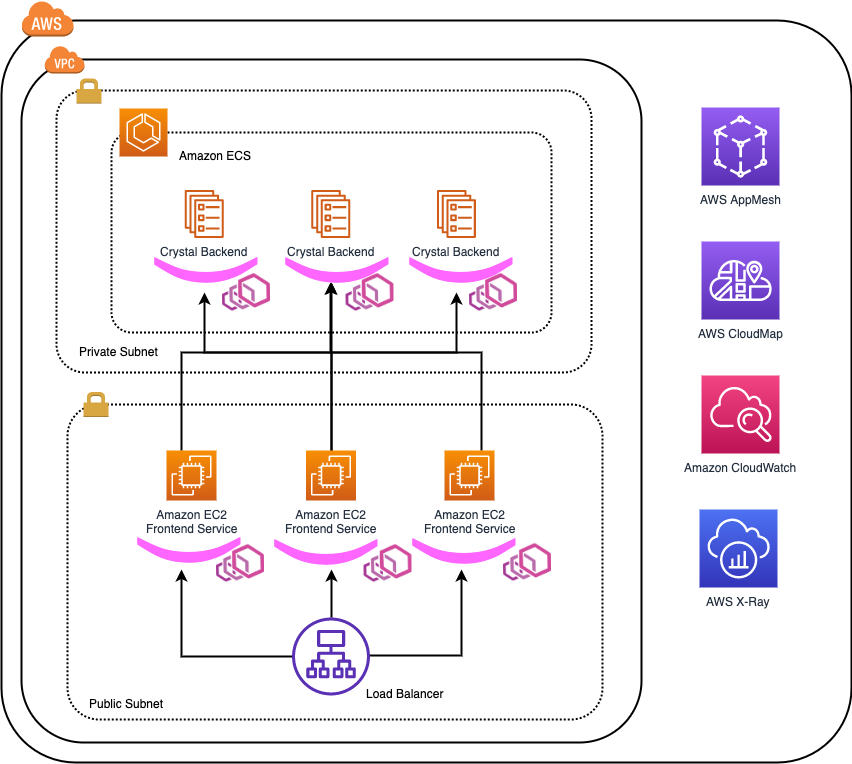Routing to specific microservices

AWS App Mesh allows you to implement advanced routing capabilities between your microservices. One of the ways to achieve this is to working with Header based routing.
Using header-based routing, you can create patterns such as session persistence (sticky sessions) or an enhanced experience using “state”. HTTP header-based routing enables using HTTP header information as a basis to determine how to route a request. This might be a standard header, like Accept or Cookie, or it might be a custom header, like my-own-header-key-value.
Header-based routing can also be used to enable use cases such as A/B testing (e.g.: custom headers using any string), canary or blue/green deployments, delivering different pages or user experiences based on categories of devices. (e.g.: using regex in header), handling traffic from different browsers differently (e.g. using user-agent) or configuring access restrictions based on IP address or CDN. (e.g. using X-Forwarded-for).
In this step, let’s configure a route that checks if the header canary_fleet is equals true. If so, the requests will be send to the crystal-sd-epoch version of the Crystal backend service.